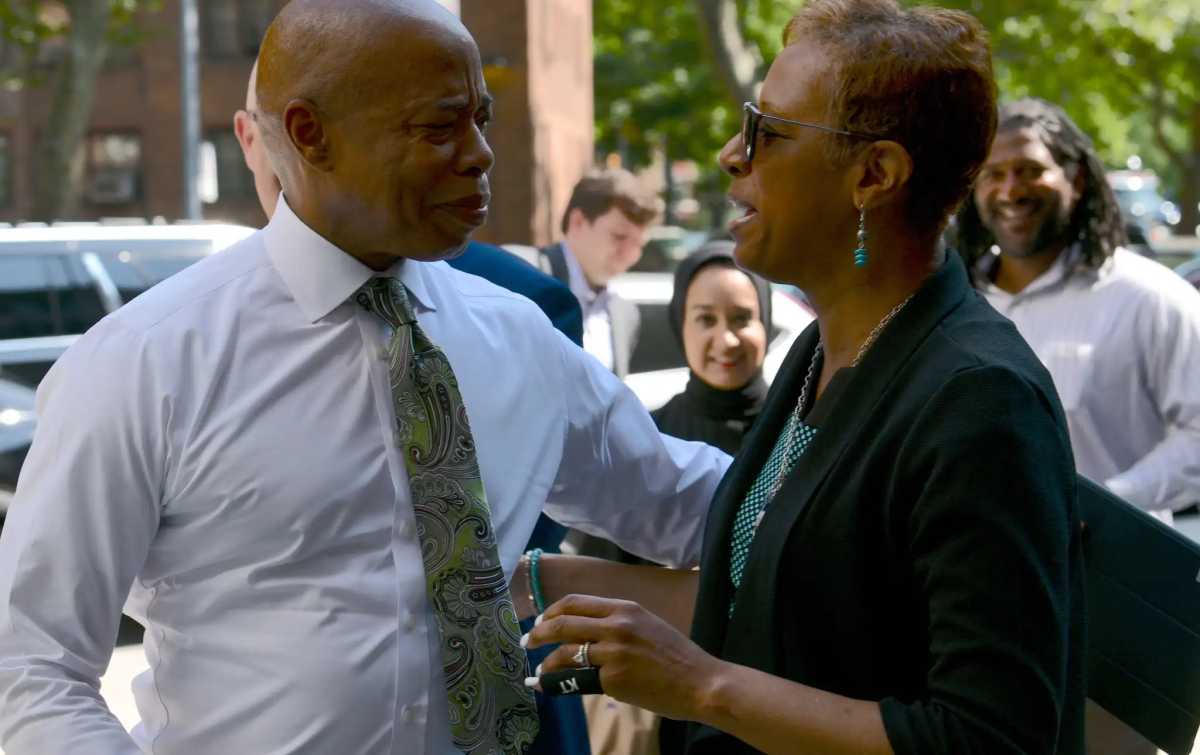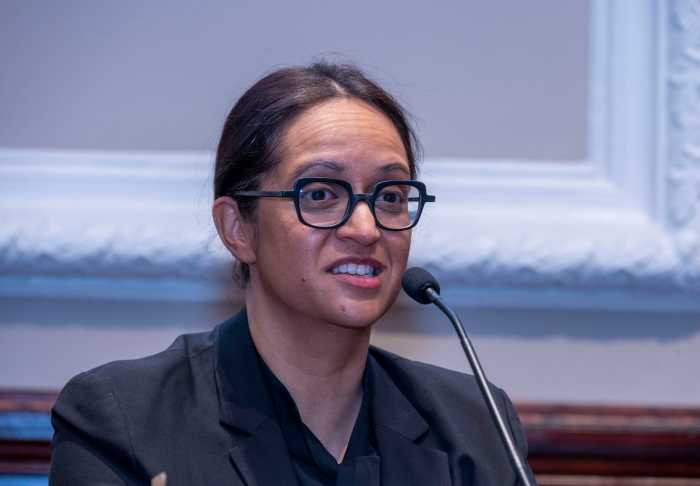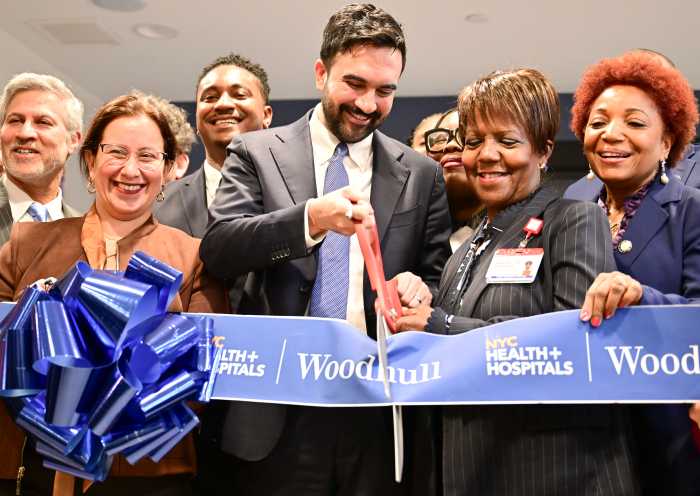The June 30 NYC budget deadline is 3 days away, and it remains unclear when Mayor Eric Adams and the City Council will shake hands on a new deal.
While Mayor Adams did not directly answer at a Thursday press conference whether or not he thinks the budget will be on time, he did invoke his consistent refrain that he and Council Speaker Adrienne Adams will eventually “land the plane.”
“Let’s let the process go through … and at the end of the day, trust me, we will be celebrating the success of two successful leaders in this city,” the mayor said.
A deal will not be announced on Thursday, a source with direct knowledge of the negotiations told amNewYork Metro, but is expected to come Friday. That means the budget will have to be passed by the City Council over the weekend to meet the June 30 deadline.
Negotiations have dragged on due to disagreements between the two sides of City Hall over how much revenue is available to reverse across-the-board budget cuts which the mayor previously enacted. The council insists there is over $1 billion in additional funds that the mayor’s budget office has refused to recognize.
Yet the potential that the mayor and council could blow past the annual deadline begs the question: What happens if the city spending plan is late?
Ana Champeny — vice president for research at the Citizens Budget Commission, the budget watchdog group — said nothing catastrophic happens in the immediate term.
“It is not as problematic as when the federal and state governments don’t have budgets in time, because the city charter has a provision that continues the current level of appropriations into the new year until a budget is adopted,” Champeny said. “So basically, funding levels stay where they are, and we’re able to pay vendors, pay, make payroll, etc.”
That means the last modification to the Fiscal Year 2024 budget, which was part of the mayor’s Fiscal Year 2025 executive budget introduced in April, will continue until the mayor and council pass a new plan.
Because the charter provision allows for continuing to make payroll and debt service payments with the current budget, Champeny said, a late plan should not affect the city’s credit rating in the short term.
Even though the city has a mechanism for dealing with a tardy spending plan, Champeny said, it would still be a major break from the norm.
“We haven’t had a late budget in decades in the city. It’s just not you know how the city process has functioned, so I think it would be pretty notable if we were to divert from that pattern,” she said.
Read more: Midtown Hotel District: Tourist Attack Alert








































